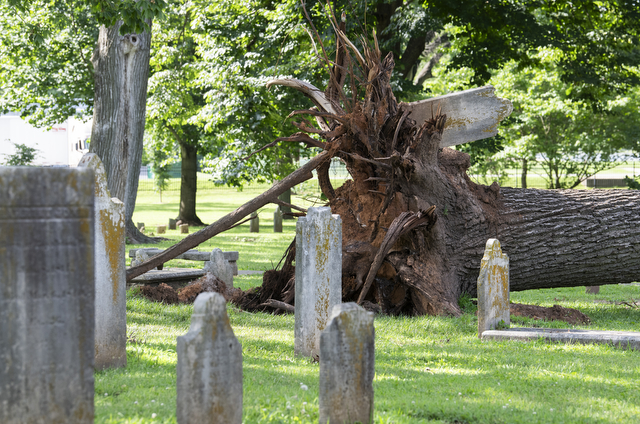Houck’s sister testifies for defense at murder trial
Published 7:59 am Thursday, July 3, 2025


Brooks Houck’s sister told jurors Wednesday at Houck’s trial that she temporarily moved her family out of state after facing threats from people early into the investigation of the disappearance of Houck’s then-girlfriend, Crystal Rogers.
Houck, 43, of Bardstown, is on trial in Warren County on charges of complicity to murder and complicity to tampering with physical evidence.
Rogers was a 35-year-old mother of five when she disappeared on July 3, 2015, in Bardstown.
Jurors have heard evidence that Rogers left with Houck that night and traveled to Houck’s family farm, but she has not been seen since.
Rogers’ car was found abandoned on the Bluegrass Parkway on July 5, 2015, and her cell phone and other belongings were inside it.
Joseph Lawson is also on trial on charges of conspiracy to commit murder and complicity to tampering with physical evidence.
All crimes were charged in Nelson County, but pretrial publicity led the trial to be moved to Warren County.
Houck’s sister takes stand for defense
Rhonda McIlvoy, Houck’s sister, gave testimony that lasted most of Wednesday morning’s session.
Questioned by Houck’s attorney, Brian Butler, McIlvoy went into the relationship between Rogers and Rosemary Houck, Brooks’ mother, who has been termed an “unindicted co-conspirator” by prosecutors.
“I wouldn’t classify it as a super-close relationship but I never witnessed any huge blowouts or anything of that sort,” McIlvoy said.
Jurors were shown pictures of Houck and Rogers at the family farm, including one of Houck on a four-wheeler pulling Rogers and their young son behind them on an inner tube.
McIlvoy said that she and Rogers would come up with things for much of the family to do at the Houck farm.
After Rogers disappeared in 2015, McIlvoy testified that fingers started pointing at her family “immediately,” and that she and her brother received threats.
McIlvoy said she pulled her children out of schools twice, was threatened and followed before she moved her family late in 2015 in North Carolina out of concerns for her family’s safety.
While in North Carolina, she agreed to be interviewed by then-Detective Jon Snow of the Nelson County Sheriff’s Office and Detective Jamie Brooks of the Jefferson County Sheriff’s Office.
McIlvoy testified Wednesday that the detectives claimed that a member of Brooks’ family provided them a photo proving that she babysat Houck’s and Rogers’ son on July 3, 2015.
“I was really upset because I had already provided photos from July 3 showing that I was in Louisville at the Kentucky Science Center with my husband and three children,” McIlvoy said.
McIlvoy returned to Kentucky in 2017 to be closer to her father after he was diagnosed with cancer, living with her mother at the farm before settling into a newly-built home on the property.
McIlvoy said that FBI agents who interviewed her later showed her a grainy picture of an SUV they purported showed her at the farm on July 3, 2015, but jurors were shown pictures of her with her family at the science center in Louisville.
McIlvoy acknowledged secretly bringing a digital recorder into a grand jury proceeding in 2016.
Jurors have heard evidence that federal investigators seized three recorders from Rosemary Houck’s home while executing a search warrant at the property in 2020.
“I was paranoid, the whole family was paranoid due to the circumstances, all the threats and accusations,” McIlvoy said.
Cross-examination from special prosecutor Jim Lesousky focused largely on the recorder.
Jurors earlier heard an excerpt of a recorded conversation between McIlvoy and Houck that occurred just before she went into the grand jury room to testify.
Lesousky provided McIlovy a transcript of the recorded snippet and asked why she had the recording, with McIlvoy saying she wanted to have “proof of what I did say or didn’t say.”
Asked by Lesousky if she kept the recording, McIlvoy said she may have lost track of it after moving from her mother’s house to her new home.
Lesousky also asked McIlovy about Houck mentioning their brother, Nick Houck, during their conversation outside the grand jury room.
Houck is also identified by prosecutors as an unindicted co-conspirator.
Lesousky asked if the conversation had to do with Brooks Houck wanting her to carry the recorder into the grand jury room despite her apparent opposition and having Nick Houck prepare to equip her with the device. McIlovy said that Nick Houck was not very good with technology.
Earlier in the trial, jurors heard that Brooks Houck contacted two stores about getting the windows of his truck tinted within days of Rogers’ disappearance.
McIlvoy testified that Houck’s son has an optic nerve disorder in one eye that has required treatment from a young age and he was prescribed glasses with transition lenses when he was very young.
Questioned by Lesousky about why Houck waited to have his truck’s windows tinted until his son was about 2 1/2 years old, McIlovy testified that it was likely Houck did so after a doctor’s appointment.
Prosecution rests with claims against Lawson
Joseph Lawson, who at one time worked for Houck, has not received the focus for much of the trial, until Tuesday afternoon, when the prosecution called a number of people, including relatives, who made damaging allegations.
Lawson’s grandmother, Barbara Colter, testified of an incident a few years earlier in which Lawson drove a motorcycle to her home while on drugs, sat on her living room couch and claimed that his father, Steven Lawson, had killed Rogers.
Steven Lawson was found guilty of conspiracy to commit murder and tampering with physical evidence, based on allegations that he picked up his son from the site of Rogers’ car at the Bluegrass Parkway and pushed up the driver’s seat.
“I said If you’re going to accuse your dad of this, you better make sure you’re telling the truth,” Colter said.
Steven Lawson’s ex-wife, Rebecca Greer, whose daughter was in a relationship with Joseph Lawson that produced a child, testified Tuesday afternoon that she overheard Joseph Lawson tell his then-girlfriend around 2019 about moving a car for $50,000.
Greer said she confronted Joseph Lawson about that a few months later, asking him whether he was telling the truth.
“He said ‘yes, but if you want to know any details you have to ask Steve,’ ” Greer said.
Cross-examined by Butler, Greer said she did not know Joseph or Stephen Lawson to have much money when she knew them, and that the two men often argued with one another.
Stacie Cranmer, who worked for Houck, testified that he saw him and Steven Lawson driving together at a job site, which she noted was unusual.
Cranmer said she asked Lawson what they talked about and testified that Lawson said that he had to “take care of this girl. She has five kids and she’s not doing good.”
Cranmer testified that she asked whether that meant sending her to rehab, and Lawson replied that he wished that was the case.
Cranmer said she left a message with police a few days after Rogers disappeared, but no one called her back and that police did not take her seriously when she went in person in October 2015 to report what she heard.
Joseph Lawson’s attorney, Kevin Coleman, described his client as “collateral damage” during his opening statement to jurors Wednesday morning, saying that Lawson was not on the Bluegrass Parkway and had nothing to do with any kind of murder plot.
“His life and the lives of some of the people you’ve seen testify, are examples of what the government is willing to do to accomplish its objective, which is to prosecute Brooks Houck,” Coleman said.








